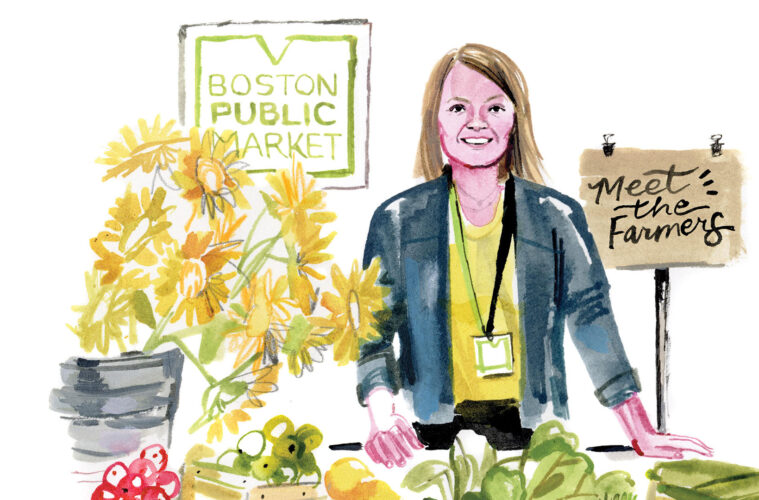Carrie DeWitt ’07 has always been proud to come from a line of farmers. With a great-grandfather who owned a dairy farm in Pennsylvania, and a father who grows vegetables, fruits, and herbs as a hobby, DeWitt has been familiar with the fickle nature of crops and agriculture for most of her life. Although she never believed she was tough enough to be a farmer, she realized there was a way to translate her passion into a profession.
Enter the farmers markets.
Living in San Francisco, DeWitt quickly became enmeshed in the local food movement. When a cross-country move took her to Ann Arbor, Mich., she found a job with the city’s 102-year-old outdoor market.
“Michigan is the third most agriculturally diverse state in the country,” DeWitt says. As the assistant manager of the Ann Arbor Farmers Market, DeWitt met farmers from all backgrounds. More than 140 vendors sold their produce and other products for the entire year — including during the harsh Michigan winter.
“Farmers would be out there with heat lamps, trying to keep the kale and greens from freezing,” DeWitt remembers.
To expand her knowledge of agricultural history and policy making in the United States, DeWitt earned a master of science in agriculture, food, and the environment at Tufts University in Boston. While completing her coursework for the program, she started interning at the Boston Public Market. That role turned into a full-time position as the market’s director of community engagement.
Compared to the Ann Arbor market, Boston’s indoor space came with a handful of new opportunities and challenges. The market is only in its sixth year of operation and has room for about 30 vendors at a time. While the indoor venue has its perks, DeWitt says there are also the logistics to deal with, like managing the dozens of vendors who bring large quantities of goods into an urban space.
But DeWitt has been more focused on bridging the gap between the consumers and the farmers. She’s organized educational events for children and adults alike, with activities ranging from pressing apples for cider to the basics of beekeeping. She also helped organize a program for schools, where farmers packed small bags for kids to take home. In addition to introducing people to the basics of farming and nutrition, she worked to make the fresh produce accessible for lower income customers.
In her experience, DeWitt says, most people want to eat locally and healthily, “but there’s a lot of misconceptions about what that means and what it translates to for farmers.” One is the question of whether organic is better than conventional produce. Shoppers assume all the produce at the market is organic because it’s coming straight from the farms, but only one vendor is certified organic. Some farmers find the certification too expensive or time consuming. “Everyone has constraints in their lives,” she says.
What DeWitt understands is that food is a deeply personal and emotional subject for all. Her goal is simply to have people come away from the market with good, fresh food, and maybe a better understanding of the realities of farming.
“People are really invested in knowing about their food and making their own decisions,” DeWitt says, “and I think that’s great.”
 Illustration by Lauren Tamaki
Illustration by Lauren Tamaki